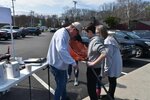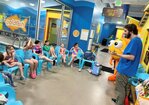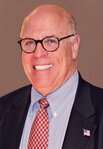Saving Yaghjian Farm
The history of the Yaghjian Farm dates back to 1901 when Andras Yaghjian, concerned by the political unrest that eventually led to the Armenian Genocide in 1915, emigrated with about 40,000 of his countrymen from Turkey to Providence, R.I. His grandson, Arthur, recalls that he worked as a gold refiner for the Waite-Thresher Company in Providence. Andras married and had 10 children -- 5 girls and 5 boys. Feeding such a large family was a challenge, and this challenge led him to purchase a 4-acre farm at 1655 Fall River Avenue in Seekonk. With the help of his 10 children, he grew mainly small vegetables (radishes, beets, lettuce, squash, tomatoes etc.) and sold them at his Wayside Gardens farmstand on Fall River Avenue. Of the 10 children, only 2 sons retained their interest in farming: Anthony, who continued to farm the family homestead and Nubar, Arthur’s father.
After Nubar married Lilly, a Swedish woman who lived 2 houses away, he became a skilled carpenter. In 1949, at the age of 38, Nubar was offered 30 acres of land on South Wheaton Avenue across from his father’s farm on Fall River Avenue. He bought the property and proceeded with his own hands to build a house and barn for his family. The family would successively occupy more rooms as Nubar completed them. Eventually, there were 4 children -- 2 boys (Arthur and Ronald) and then 2 girls (Marilyn and Linda). Nubar continued to work as a carpenter during the day, but after work would return home to farm 12 of the 30 acres with his brother Anthony. To make this possible, the 4 children and their mother joined with their father to plant and bring in the crops in the evenings, after school, and during the summers. Reflecting on those days, Arthur writes “We children worked from a very young age on the farm because much of the planting, weeding, hoeing, fertilizing, and harvesting was done by hand. We seldom complained because it was the natural thing to do seeing how hard my mother and father worked every day”. As the kids grew up and left the roost, they would return to help their parents on the weekends. Eventually, a farmer from outside rented and farmed the land after Nubar died in 1996, and Lilly became too old to live alone on the farm.
Around 2007, Arthur, the eldest child, approached the Seekonk Land Conservation Trust about finding ways to protect the farm from development. Arthur and his siblings loved the farm and wanted it to survive as a testimonial to their parent’s vision and hard work. Such was Arthur’s love for farming and the house and farm at Wheaton Avenue that he considered moving from Concord, MA, but in the end he decided it was not practical. Arthur’s life had taken a completely different direction from farming. He is now a research electromagnetic physicist.
In 2007 the land trust did not have the resources to help the family, but in 2010, with the adoption of the Community Preservation Act (CPA) by Seekonk, it became possible for the family to apply to the APR program, knowing the town could now contribute financially towards its protection. The APR Program (Agricultural Preservation Restriction) is a Massachusetts program that buys the development rights of farmland so that the land can be farmed perpetually. In 2012, the program was paying $10,000 per acre for farmland preservation with the expectation that any additional costs would be covered by the town. Historically, the town selectpersons have never bought property to protect open space or farmland. Therefore, it had not been possible to use the APR program prior to the 2009 passage of the CPA in Seekonk which earmarks money for open space, recreation, historic preservation and affordable housing. The appraised value of the development rights for the 30 acres (not including the house and barn) was $480,000. The APR program paid $300,000 and town CPA funds paid $180,000. The deed on this 30 acres requires ongoing agricultural use of the land (monitored by the APR Program) and prohibits any future development of the land. Currently, the house and barn built by Nubar back in the 1950’s are owned by a Yaghjian cousin and the restricted 30 acres of farmland is owned by a neighbor who continues to grow corn and some other vegetables.
The Yaghjian Farm was protected in 2013. Since then, with the Seekonk Land Conservation Trust’s guidance, two more farms totaling 100 acres have been protected using the State of Massachusetts’s APR Program as well as the financial support of the town through the CPA Program.
















Comments
No comments on this item Please log in to comment by clicking here